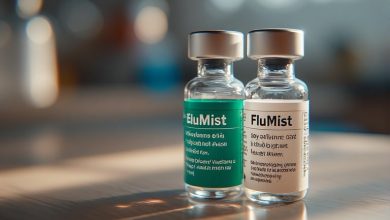

Hepatitis C is no longer the hopeless diagnosis it used to be. Thanks to modern antiviral medication, millions of people are now living healthier, longer lives. But not all treatments are the same. That’s why it’s essential to understand what options are truly effective and which medications work best for different patients.
In this ultimate guide, we’re diving deep into the most effective antiviral medications for Hepatitis C, how they work, who they’re for, and how you can start your journey to a complete cure — yes, cure — in just weeks.
🧬 What Is Hepatitis C?
Hepatitis C is a viral infection that targets the liver, often going unnoticed for years. It spreads through contaminated blood and can lead to chronic liver disease, cirrhosis, or even liver cancer if untreated.
What’s hopeful is this: with today’s FDA-approved antiviral drugs, over 95% of patients can be cured.
💊 Why Antiviral Medications Are a Game-Changer
Unlike older therapies that involved interferon and came with harsh side effects, direct-acting antiviral (DAA) medications now offer:
-
Short treatment duration (8–12 weeks)
-
Minimal side effects
-
Very high cure rates
-
Once-daily pills — no injections
That’s what makes antiviral medication for Hepatitis C so revolutionary.
🔍 How Antiviral Medications Work
DAAs directly block the HCV virus from multiplying. They target specific proteins essential for viral replication, including:
-
NS3/4A protease inhibitors
-
NS5A inhibitors
-
NS5B polymerase inhibitors
When combined, they form powerful regimens that clear the virus completely from the body.
✅ Who Should Take Antiviral Medications?
Almost everyone diagnosed with Hepatitis C should be treated. This includes:
-
People with chronic Hepatitis C
-
Those with mild to severe liver damage
-
Individuals co-infected with HIV
-
Patients waiting for or post liver transplantation
-
People with previous failed treatments
Pregnant women and children require specialized evaluation.
🔝 Top 7 Antiviral Medications for Hepatitis C in 2025
Here are the 7 most effective, doctor-recommended, and widely used antiviral treatments that offer fast, safe, and long-term results.
1. Epclusa (Sofosbuvir + Velpatasvir)
Epclusa is one of the most versatile and widely prescribed medications for Hepatitis C.
-
Treats all 6 major HCV genotypes
-
Cure rate: Over 95%
-
Duration: 12 weeks
-
Approved for: Adults and children 6 years and older
-
Bonus: No need for genotype testing
Why it's popular: Simplicity. One pill a day. High success.
2. Harvoni (Ledipasvir + Sofosbuvir)
Harvoni was a pioneer drug in the field.
-
Best for Genotypes 1, 4, 5, 6
-
Cure rate: Up to 99% in clinical trials
-
Duration: 8 to 12 weeks
-
Ideal for: Patients without cirrhosis
Why it matters: This was the first once-daily pill to eliminate the need for interferon or ribavirin.
3. Mavyret (Glecaprevir + Pibrentasvir)
Mavyret offers one of the shortest treatment durations available.
-
Treats all genotypes
-
Cure rate: Up to 98%
-
Duration: Only 8 weeks (12 weeks for some)
-
FDA-approved for: Treatment-naive and experienced
Extra benefit: Safe for people with severe kidney disease.
4. Vosevi (Sofosbuvir + Velpatasvir + Voxilaprevir)
Vosevi is ideal for retreatment cases.
-
For: Those who’ve failed past treatments
-
Cure rate: Over 96%
-
Duration: 12 weeks
What sets it apart: Triple-combination therapy designed for resistance cases.
5. Zepatier (Elbasvir + Grazoprevir)
Another effective combo, especially for:
-
Genotypes 1 and 4
-
Patients with kidney disease
-
12-week regimen
-
High cure rate
Fun fact: Works well for those co-infected with HIV.
6. Generic Sofosbuvir Combinations
Generics are widely available now, especially in countries like India and Egypt.
-
Same effectiveness
-
Much lower cost
-
Often combined with Daclatasvir
If you don’t have access to branded meds, these are a great option under medical supervision.
7. Ribavirin (As Add-on)
Ribavirin is no longer used alone but is sometimes added:
-
To boost response in resistant HCV cases
-
Alongside DAAs in cirrhotic or transplant patients
Warning: Comes with strong side effects, so it’s a last resort.
💡 Choosing the Right Medication for You
Several factors guide your doctor’s choice:
-
HCV genotype
-
Liver health (fibrosis/cirrhosis status)
-
Previous treatments
-
Kidney function
-
Other health conditions
-
Cost and availability
This is not one-size-fits-all, but rest assured — there’s a cure for everyone.
🤯 What About Side Effects?
Today’s antiviral medications for Hepatitis C are well-tolerated. Still, you might experience:
-
Fatigue
-
Headache
-
Nausea
-
Mild diarrhea
-
Insomnia
Serious side effects are rare, especially when you're monitored by a liver specialist.
⏳ How Long Does It Take to See Results?
-
Viral load usually drops within 2–4 weeks
-
Most patients are undetectable by 8 weeks
-
Sustained virologic response (SVR) — meaning cure — is measured 12 weeks after treatment ends
SVR = You’re cured.
🛑 Can You Be Reinfected After Cure?
Yes, it’s possible. Especially if you're exposed to:
-
Contaminated needles
-
Unscreened blood
-
Unprotected sex with HCV-infected partners
So after a cure, continue safe practices and get retested annually if you're at risk.
🌍 How Much Do These Medications Cost?
In the U.S., brand-name treatments can cost $26,000 to $94,500 for a full course. But:
-
Insurance and co-pay programs can reduce costs
-
Generic versions abroad cost as little as $500
-
Patient-assistance programs are widely available
🔗 PAN Foundation – Hepatitis C Support
📈 Why Early Treatment Matters
Treating Hepatitis C early can:
-
Prevent liver damage
-
Eliminate the virus faster
-
Avoid complications
-
Improve quality of life
-
Save thousands in healthcare costs
The earlier, the better.
🧭 Your Step-by-Step Treatment Journey
-
Get tested and diagnosed
-
Determine your genotype and liver condition
-
Consult a liver specialist
-
Start on the best antiviral regimen for you
-
Stick to your daily dose schedule
-
Get monitored at weeks 4, 8, and 12
-
Get SVR testing post-treatment
🗣️ Real Patient Success Stories
“After 12 weeks of Epclusa, I’m cured. I feel stronger, lighter, and free. Best decision I ever made.”
— Sarah, 41
“Mavyret worked wonders. I didn’t think it could be that easy. I just took a pill every morning. Done.”
— Carlos, 53
These aren’t rare — they’re common outcomes today.
📢 Final Thoughts: Your Cure Is Closer Than You Think
With today’s antiviral medication for Hepatitis C, you can be cured — often in just 8 to 12 weeks. No painful shots. No long-term hospital stays. Just the right pills and a personalized treatment plan.
So if you or a loved one is struggling with Hepatitis C, now is the time to act.
Because what was once a chronic, life-threatening condition is now a curable infection.


